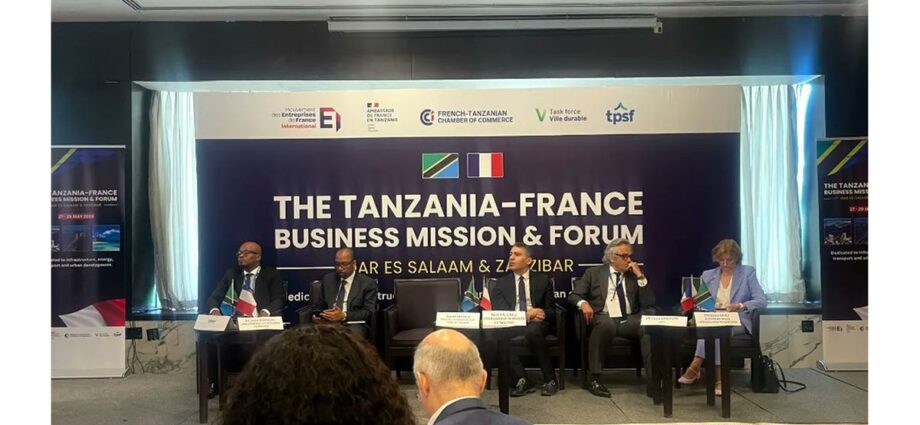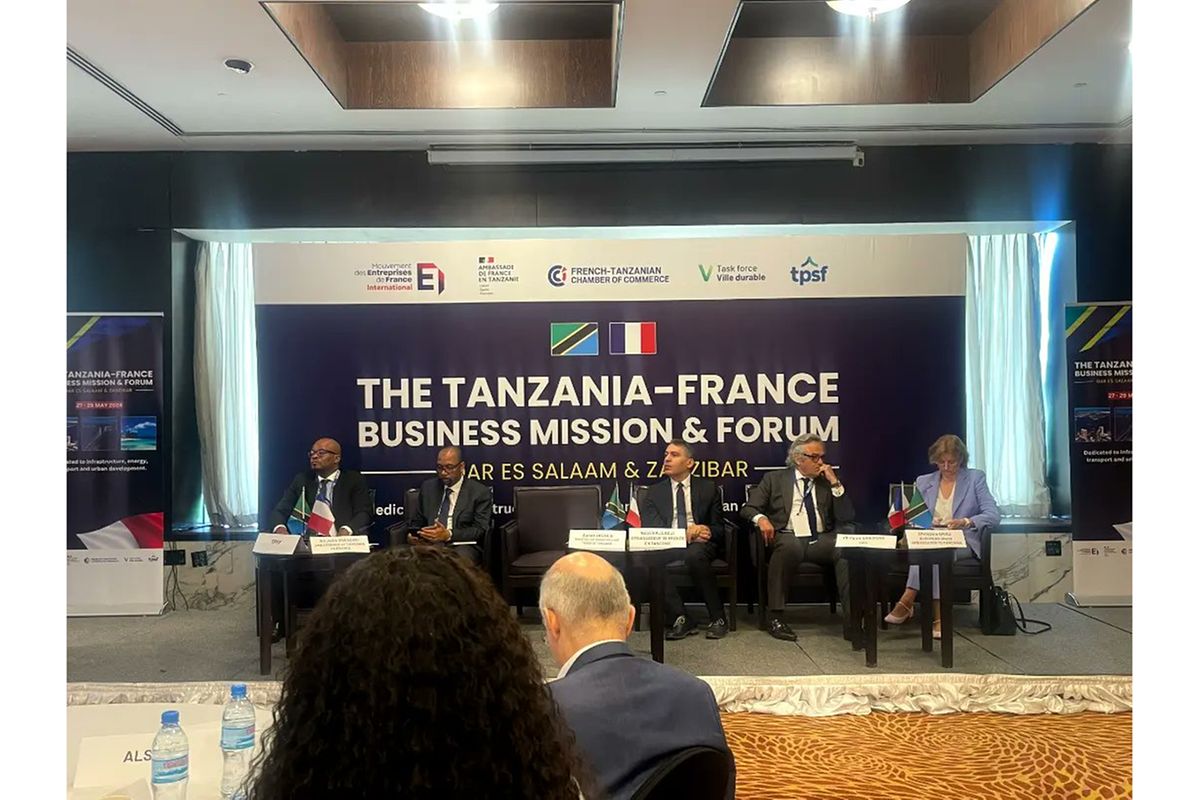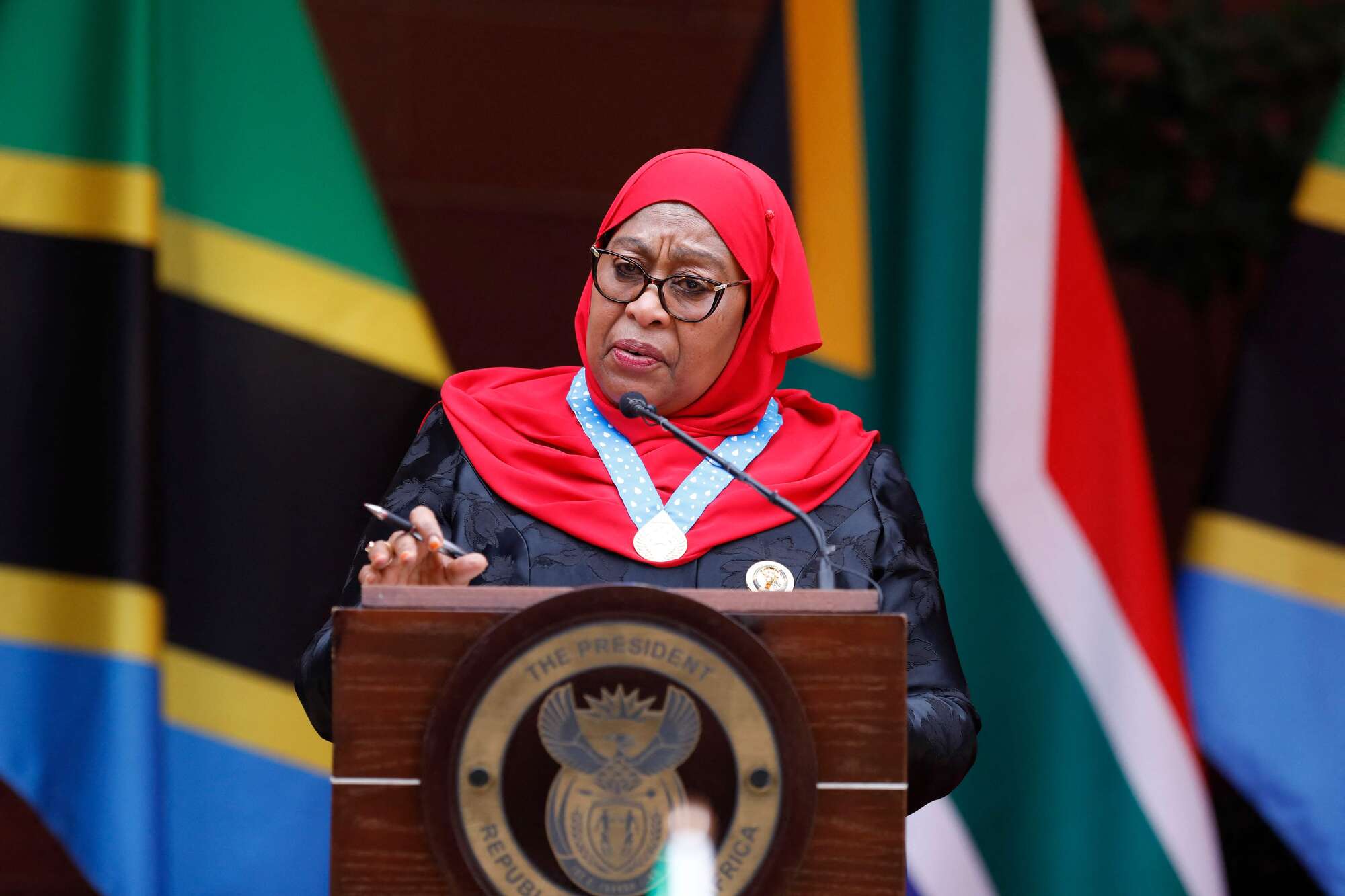Dar es Salaam. Over 22 representatives from French companies, accompanied by government officials, are currently in the country to explore diverse business prospects spanning energy transition, infrastructure, transport, tourism, and sustainable cities.
The visit highlights the potential for strengthened economic relations and inventive collaborations between the two nations, with a shared goal of fostering mutual economic growth.
Through the exchange of expertise and investments in key industries, both economies aim to reap significant benefits.
At the second French-Tanzania Business Forum that started on May 27, 2024, the Special Advisor to the minister for Smart and Sustainable Cities at France’s Ministry of Foreign Affairs, Gerald Wolf, highlighted that several companies are poised to make immediate investments in the aforementioned sector.
This underscores the promising momentum for strengthening economic ties between France and Tanzania.
“We are actively seeking opportunities to identify suitable partners across various sectors. Tanzania holds tremendous potential for opportunities, and we have high expectations for fruitful collaboration due to its vast array of possibilities,” he said.
According to him, Tanzania has huge potential in agriculture and is strategically located in eastern and southern Africa.
This advantageous position is further bolstered by its connection to the Standard Gauge Railway (SGR) and Metre Gauge Railway (MGR), enabling the export of soft commodities and imports through the Dar es Salaam port.
In accordance with the Memorandum of Understanding (MoU) concerning the commercialization of Uganda’s discovered petroleum resources, feasibility studies were conducted to explore the development of a crude oil export pipeline from the Albertine Graben in Uganda to the East African Coast.
The objective was to identify the most cost-effective route for transporting Uganda’s crude oil to international oil markets.
The Hoima (Uganda)–Tanga (Tanzania) route was found to be the most economic and robust route option since it was more secure, had less constructability and logistical constraints, and had an already operational port, resulting in the lowest possible tariff.
The French ambassador to Tanzania, Mr Nabil Haijaoui, said that France is focused on fostering stronger economic ties and promoting sustainable development through a series of insightful discussions and strategic meetings.
The aim of the tour is to bolster trade and investment by establishing a global gateway for businesses from both countries to thrive.
Participants will also have the opportunity to engage with representatives from major financial institutions such as the World Bank, the International Finance Corporation (IFC), the French Development Agency, the African Development Bank, and the European Investment Bank (BEI).
Tanzania ambassador to France, Ali Mwadini, said that things are happening, adding that when people come to Tanzania, it means it has a lot of things that have attracted them.
“We have many reasons to work together because our location is unique; many countries share borders with us. This is why Tanzania has been reviewing policies to attract investments into the country,” he said.
According to him, discussions are currently underway with a number of French companies to invest in several projects, including the Standard Gauge Railway (SGR), although he refrained from providing detailed explanations at this time.
In the context of profound changes in economies, demographics, and the rise of digital societies, the ambassador emphasised their mission to promote the freedom of enterprises and entrepreneurship.
To achieve this goal, the embassy takes initiatives aimed at enabling companies to capitalise on a favourable legislative and regulatory environment across economic, fiscal, social, environmental, and societal domains.
This facilitates the expansion of their activities both within France and abroad.















